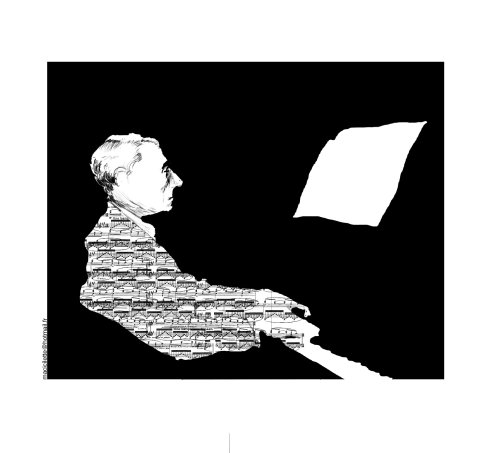| Page 1 : The "Ravel-mystery" |
 Some think that :
|
||
|
« Maurice Ravel's life gives
little place to anecdotes or romanticism. It is simple and
straightforward, vowed to music.»
|
(Georges Léon) | ||
| whereas some others say : | |||
|
« On Ravel's music, as on his personality, hovers a kind of enigma, an unresolved mystery » |
(H.H. Stückenschmitt) | ||
|
|
|||
Ravel writes : ""Nothing is more hateful than music without ulterior motive."Frédéric Chopin An ulterior motive ?... |
Les Polonaises, les Nocturnes, les Impromptus, la Barcarolle/Impressions, published (in part) in the Courrier musical (January 1st 1910) | ||
|
|
|||
|
"Two things are
invariably required —
first, some amount of complexity, or more properly, adaptation; and,
secondly, some amount of suggestiveness — some under current,
however indefinite of meaning. It is this latter, in especial, which
imparts to a work of art so much of that richness (to borrow from
colloquy a forcible term) which we are too fond of confounding with
the ideal. "
some under current... |
E.A.Poe The philosophy of composition | ||
|
|
|||
 "What enthralled him there, that was not the whole
movie [...] : it was the very last scene, when the invisble man, shot
down, reconstitutes himself slowly. [...] Ravel, thinking of the
invisible man's death (who is at the same time the artist's
resurrection), was talking about it always with a lump in his throat,
with great émotion, sometimes almost a tear. Ravel did not
like movies enough to be obsessed by a sequence like this if it had not
awoken in him something very deep.."
Quelque chose d'invisible... qui réapparaitrait ?...  |
Souvenirs
de Manuel Rosenthal (interviewed by Marcel Marnat), Hazan,1995.
|
||
|
|
|||
| About
the the work as about the man, the word "secret" is often spoken. A secret, real or fancied, is the best invisible way to protect the artist against the disturbing flies that success brings. Ravel's secret ? Maybe just the respect of his art, the taste for purity of technique, in the workshop carefully put in order, the sense of the work's completion, and of the perfection of means, and the so French passion for the beauties of grammar and syntax ! |
Roger Allar, in Revue musicale, December 1938. | ||
|
|
|||
| " The desire of doing his best, of
satisfying the most secret demands of a sharp inteligence constantly on
the alert, gave Ravel the look of a gentleman rather hard-hearted, hardly approachable, meticulous and cold What a mistake ! Under the outward appearance of a musician liking clearness and accuracy, the author of the Bolero - one of the most peculiar pieces of the music modern history-, a loving heart was hidden, ingenuous, tender and tormented. " |
Léon-Paul Fargue. Autour de Ravel in Maurice Ravel par quelques-uns de ses familiers. Paris éditions du Tambourinaire, 1939. | ||
 |
David Lamaze
Le Cygne de Ravel ~ Le Coeur de l'horloge
Le Cygne de Ravel ~ Le Coeur de l'horloge